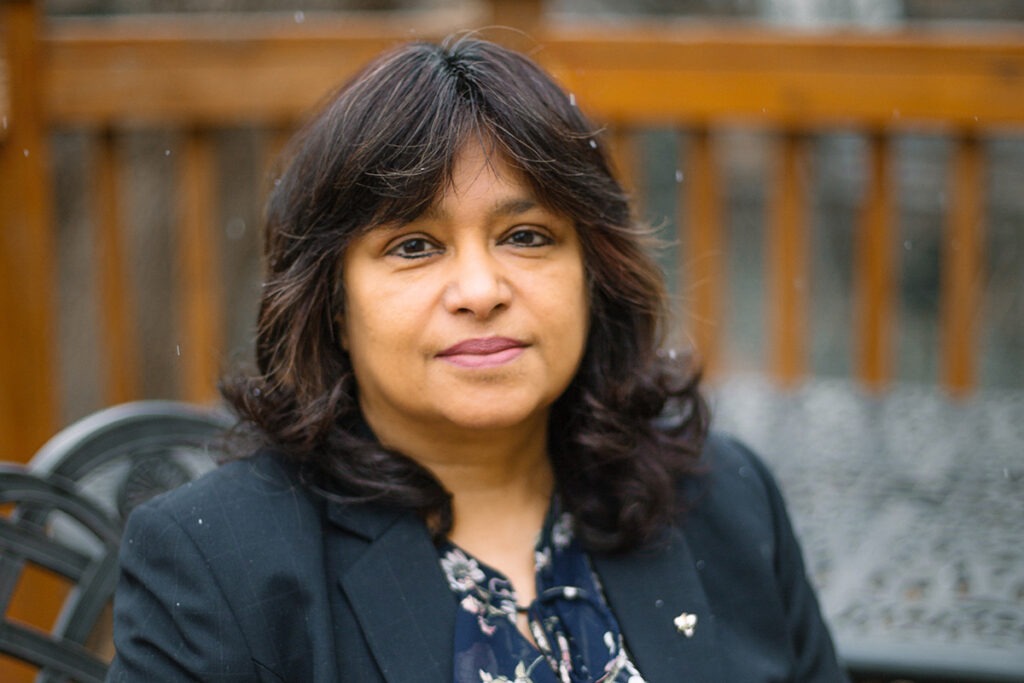Food insecurity for children in Indigenous communities is a ‘crisis’ that needs to be addressed

Dr. Anna Banerji
Sign up for the Unity Health Toronto newsletter, a monthly update on the latest news, stories, patient voices and research emailed directly to subscribers. If you haven’t subscribed yet, you can do that by clicking here.
Dr. Anna Banerji’s ties to the Arctic run deep. She visited for the first time in 1995 to research respiratory syncytial virus (RSV) in Inuit babies. In 2004, she adopted an Inuit son and developed a close relationship with his foster and biological families. As a tropical disease specialist, infectious disease physician and pediatrician, she was originally looking into RSV vaccine access, but over time and more than 50 visits, another glaring issue in Northern communities became obvious: the lack of food security so many families – and particularly children – face.
“Food security in children means having enough food for growth and development,” says Banerji, who works at St. Joseph’s Health Centre. “Severe food insecurity, which is happening in Indigenous communities across the country, means children are going full days or more without food.”
Banerji recently authored a paper about the prevalence and consequences of food insecurity for children in Indigenous communities. The paper examines how a number of factors, namely poverty, fuel food insecurity. Colonization, which altered hunting and gathering practices, and in some cases outlawed cultural traditions like feasts and ceremonies, played a significant role.
“It’s important to recognize that this is a crisis,” says Banerji. “Children are starving to a point where some children are not growing.”
Healthy foods tend to be more expensive than less healthy options, which can lead to a number of health concerns. The study shows that dental issues, iron and nutrient deficiencies and obesity are some of the many outcomes. The hunger that comes with food insecurity can also make it challenging for students to focus in school, furthering cycles of poverty and unemployment. Limited access to food has also been associated with risk of psychological distress and thoughts of suicide in adolescents.
Banerji, who won the Peter Henderson Award for her advocacy for Indigenous health, stresses that solutions have to be led by Indigenous communities and be guided by an understanding of history, culture and geography. Different communities prefer different foods, and while some communities have become adept at applying for government grants and funding to get support, others aren’t able to access these programs. Even when applications are successful, government subsidies often go straight to stores instead of consumers, she says.
To support children living without food security, Banerji says school-based nutrition programs are integral.
“We need Canadians to understand that this is an important issue that affects many people,” says Banerji. “We have to address basic things like food and water security, otherwise we’re continuing the Colonization.”
Banerji is returning to the Arctic again soon. She is working on a documentary about her son, who died five years ago, and the necessity of working to prevent suicide in Indigenous communities. She helped to establish the Nathan Banerji-Kearney Award for Indigenous Students in honour of her son to support Indigenous medical students, and The Nathan Banerji-Kearney Memorial Award for Indigenous Students, which recognizes fourth-year, graduating Indigenous students who demonstrate excellence in working with Indigenous communities.
By: Olivia Lavery
